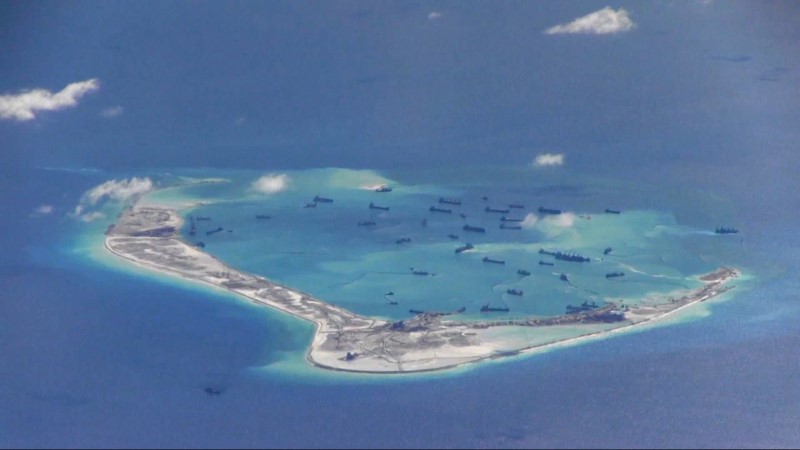MANILA (Reuters) - China's recent installation of weapons on artificial islands in the disputed South China Sea was "very troubling", the Philippines' defence minister said on Tuesday, after Manila quietly protested against Beijing's activities.
The Philippine foreign ministry sent a note verbale to the Chinese embassy last month after confirming a report from the U.S.-based Center for Strategic and International Studies about China's arms buildup in the Spratlys.
"The actions of China in militarising those disputed features are very troubling," Delfin Lorenzana said in a statement.
"They do not square with the Chinese government's rhetoric that its purpose is peaceful and friendly."
Lorenzana took a stronger line than Foreign Secretary Perfecto Yasay, who refrained on Tuesday from criticising China, but said the issue had to be handled carefully and the public should know "we are not sleeping on the job".
"When something happens that can pose us some kind of threats to our sovereignty rights we issue a note verbale so we can talk about it and make sure it is properly addressed," he told ANC television.
With billions of dollars of potential Chinese trade and investment at stake, the Philippines has a difficult balancing act in upholding its sovereignty claims while staying on the better terms President Rodrigo Duterte has established with historic rival China.
Mischief Reef, one of the islands where China has modern weapons, is located within the Philippines' 200 nautical mile exclusive economic zone.
In Beijing, when asked about the Philippine protest, foreign ministry spokeswoman Hua Chunying said China had the right to deploy on the Spratly islands "necessary and appropriate defence equipment to protect its sovereign territory".
At a daily briefing, she reiterated a call for two-way talks between China and maritime claimants, adding that work between China and relevant parties, including the Philippines, was "progressively lowering the temperature in the South China Sea".
The Philippines, for its part, has decided to shelve planned upgrades to facilities on islands it controls, such as repairing an eroded runway, to avoid incurring China's wrath.
Lorenzana said a diplomatic protest was the correct procedure and despite warming relations with China, the government still had a duty to protect the national interest.
China claims most of the South China Sea, through which about $5 trillion of goods passes annually. An international arbitration ruling last year invalidated those claims.
China's artificial islands became a hot issue last week when the U.S. nominee for Secretary of State, Rex Tillerson, told a Senate hearing that Beijing should be repelled from, and then denied access to, the controversial islets.

Yasay last week suggested the Philippines would play no part in such efforts, saying of the United States, "Let them do it".
